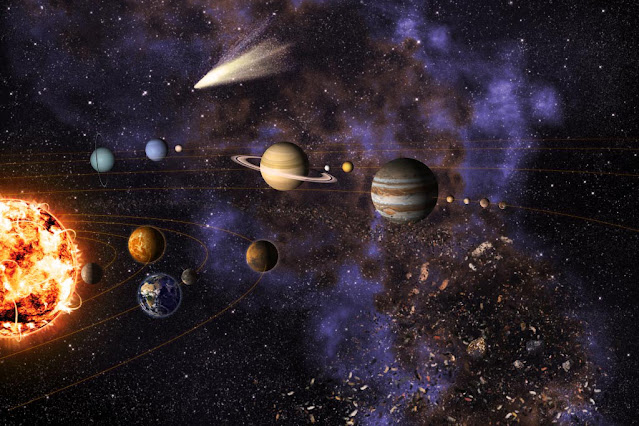Scientists have warned that the planets in our solar system might crash if Neptune’s orbit is altered by only 0.1 percent by a passing star.

The study, which was published in the Monthly Notices of the Royal Astronomical Society, shows that a “stellar flyby” – a relatively typical occurrence in the cosmos – might be sufficient to cause planets to collide.
If Mercury and Jupiter’s perihelion — the moment at which the planets are closest to the Sun — occur simultaneously, two outcomes are conceivable. Mercury’s orbit might be perturbed, causing it to either exit the Solar System or collide with Venus, the Sun, or the Earth.
These alterations will occur over millions of years, but the researchers recreated the condition around three thousand times.
In over 2,000 of them, 26 concluded with the planets colliding, or Uranus, Neptune, or Mercury are entirely expelled from the Solar System.
“The full extent that stellar flybys play in the evolution of planetary systems is still an active area of research. For planetary systems that form in a star cluster, the consensus is that stellar flybys play an important role while the planetary system remains within the star cluster”, Garett Brown, a graduate student of computational physics from the Department of Physical and Environmental Sciences (PES) at the University of Toronto.
“This is typically the first 100 million years of planetary evolution. After the star cluster dissipates the occurrence rate of stellar flybys dramatically decreases, reducing their role in the evolution of planetary systems.”
In addition, given that the Sun will certainly expand and swallow the Earth in five billion years, the possibility that this would disturb our experience in the Solar System is “not an issue we need to worry about,” according to Brown.
Reference(s): Peer-Reviewed Research

